The Propaganda
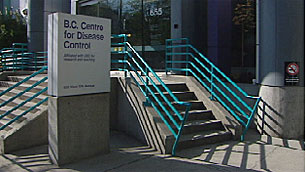
At the end of March 2010 the mainstream media loudly announces an outbreak of measles in BC. As of April 16 there have been 44 cases of measles reported around the Vancouver Lower Mainland, the BC Interior and Northern BC. No serious complications have been reported thus far though the media is using its usual scare tactics to urge the unvaccinated population to run out to get the MMR vaccine. Some schools are actually sending unvaccinated children home because they feel that measles is such a serious threat.
Simple Solution
Poverty and Malnutrition are the Problem

The press gives the impression that measles can only be kept under control by vaccination, but there is another side to the story. According to figures published in International Mortality Statistics, from 1915 to 1958 the measles death rate in the U.S. and U.K. declined by 98% (Miller). A chart illustrating the decline was published in a Public Health Report: “Mortality in the United States, 1900-1950.” The measles vaccine was introduced a few years after the decline, in 1963. The decline was not due to the vaccine, so most likely it was due to better sanitation, nutrition, and standards of living in the U.S. and U.K. Today, measles is a mild disease in first world countries but can be more severe in third world countries and in impoverished populations in the first world (Fisher). According to several studies, Vitamin A deficiency plays a big role in complication rates and chances of dying from measles (Sommer; Barclay; Keusch; Frieden). A simple solution to the measles problem is to improve hygiene and nutrition in impoverished populations.
Questionable Statistics
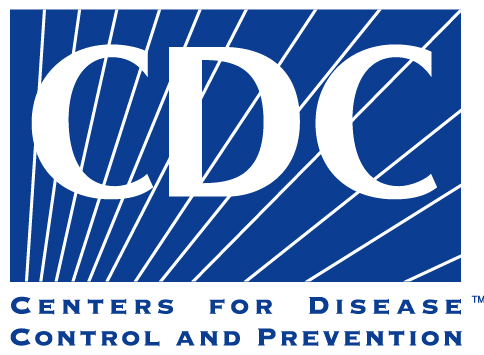
The Centers for Disease Control and Prevention (CDC) estimates the rate of measles-induced encephalitis at 1 in every 1000 infected. Dr. Robert Mendelsohn, renowned pediatrician and vaccine researcher, questions the CDC’s numbers. He says those numbers may be accurate for people living in impoverished conditions, but for those with adequate nutrition and living conditions, the true incidence of measles-induced encephalitis is more like 1 in 10,000 or 1 in 100,000. In his bestselling book The Vaccine Guide, homeopathic pediatrician Dr. Neustaedter asserts that only 25 percent of measles induced encephalitis cases show evidence of brain damage.
Vaccine Failure
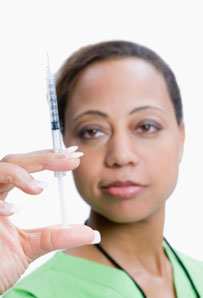
Vaccine manufacturers would like you to believe that the MMR vaccine is 100% effective, but this is not always the case. In 1988, the CDC reports that in the U.S. a whopping 45% of those who contracted the measles were fully vaccinated. The next year, in 1989 in the U.S., the CDC reports that a surprising 40% of those who got the measles were fully vaccinated. In 1996 in the U.S., the CDC reports that only 64% of those who got the measles were unvaccinated and the rest were fully vaccinated. Studies done in Ethiopia and India reported varying vaccine efficacy rates of between 53%-100% (Talley; Puri). Dr. Neustaedter estimates that approximately 60% of all children infected with the measles will have been previously vaccinated. Measles outbreaks have been reported in schools where the entire school population was fully vaccinated (Gustafson; Poland; Edmonson). Edmonson concludes that as measles immunization rates rise to high levels in a population, measles becomes a disease of immunized persons.
Vaccination Shifts Infection Risk to More Vulnerable Populations
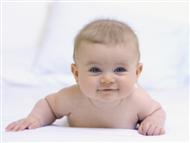
The measles vaccine alters distribution of the disease by shifting incidence rates from age-groups unlikely to experience problems (children aged 5-9) to age-groups most likely to suffer from severe complications (infants, teenagers, and adults). According to the National Foundation for Infectious Diseases, the risk of death from measles is higher for infants and adults than for children. Before the vaccine was introduced it was rare for an infant to contract measles, but by the 1990s more than 25% of all measles cases were occurring in babies under a year of age (Miller). This can be attributed to the growing number of mothers who were vaccinated in the 60s, 70s, and 80s (Haney). Before the vaccine, mothers were able to pass protective maternal antibodies to their babies, but now babies of vaccinated mothers are more vulnerable to measles (Papania). Before the introduction of the vaccine, measles was acquired in childhood before reaching adulthood. Now, since the introduction of the vaccine, measles incidence in the adult population in Canada and the U.S. is steadily increasing (Duclos).
The Link Between MMR Vaccine and Autism, Irritable Bowel Syndrome and Ulcerative Colitis

There are studies that link the MMR vaccine with some serious health disorders. One study links MMR vaccination with irritable bowel syndrome (Thompson). Scientific papers have been published reporting a likely link between the MMR vaccine and autism (Taranger; Rutter). These studies done by Taranger and Rutter linked the onset of the studied children’s autism with immunization. A controversial scientific paper by Andrew Wakefield published in the Lancet also states that the parents of the autistic children linked the onset of symptoms with the administration of the MMR vaccine. Another study has been done that confirms Wakefield’s findings (O’Leary). In 2000, a study was done confirming the existence of the vaccine strain of the measles virus in the guts of patients with autism and ulcerative colitis (Kawashima). Two studies done by Singh et al. in 2002 and 2003 confirmed the presence of MMR antibodies in autistic children, again suggesting a link between the MMR vaccine and autism. Singh concludes that the autistic children he studied had a hyper immune response to the vaccine strain of the measles in the MMR vaccine. In a paper published in 2004, measles virus was found in the spinal fluid of the autistic children studied and the authors conclude that it was very likely the vaccine strain of the virus (Bradstreet). Geier & Geier were able to measure a correlation between mercury doses from thimerosal- containing vaccines and the prevalence of autism in the 1980s and 90s. Although thimerosal has now been removed from the MMR vaccine in Canada, Geier & Geier were also able to find some correlation between measles-containing vaccines and the prevalence of autism in the 1980s.
MMR Vaccine Banned in Japan

The MMR vaccine was banned in Japan in 1993. Soon after introducing the vaccine, a record number of children developed non-viral meningitis and and other adverse reactions. An analysis of vaccinations over a three-month period showed one in every 900 children was experiencing problems. This was over 2,000 times higher than the expected rate of one child in every 100,000 to 200,000.
Measles Homeoprophylaxis

Although measles is a mild disease in healthy children, safe protection can be offered to those who would like it. Click here to learn more about Homeoprophylaxis. Feel free to contact me with any questions you may have about Homeoprophylaxis.
References
Barclay, A.J.G., et al. “Vitamin A supplements and mortality related to measles: a randomised clinical trial.” British Medical Journal (January 31, 1987) pp. 294-96.
Bradstreet, J.J., et al. “Detection of measles virus genomic RNA in cerebrospinal fluid of children with regressive autism: a report of three cases.” J Am Phys Surg. 2004:9(2):38-45.
Duclos, P., et al. “Measles in adults in Canada and the United States: implications for measles elimination and eradication.” Int J Epidemiol. 1999 Feb;28(1):141-6.
Edmonson, M. B., et al. (1990). “Mild Measles and Secondary Vaccine Failure During a Sustained Outbreak in a Highly Vaccinated Population.” JAMA 263: 2467-2471
Fisher, B.L., The Consumer’s Guide to Childhood Vaccines (Vienna, VA: National Vaccine Information Center, 1997), p. 18.
Frieden, T.R., et al. “Vitamin A levels and severity of measles: New York City.” Am J Dis Child 1992; 146: 182-86
Geier M.R., and Geier D.A. “A comparative evaluation of the effects of MMR immunization and mercury doses from thimerosal-containing childhood vaccines on the population prevalence of autism..” Med Sci Monit. 2004 Mar;10(3):PI33-9. Epub 2004 Mar 1.
Gustafson, T.L., “Measles Outbreak in a Fully Immunized School Population.” N Engl J Med 1987;316:771-4.
Haney, Daniel Q., “Wave of Infant Measles Stems from ’60s Vaccinations,” Albuquerque Journal, (November 23, 1992), p. B3
Kawashima, T., et al. “Detection and Sequencing of Measles Virus from Peripheral Mononuclear Cells from Patients with Inflammatory Bowel Disease and Autism” Dig Dis Sci. 2000 Apr;45(4):723-9.
Keusch, G.T. “Vitamin A supplements–too good to not be true.” New England Journal of Medicine (October 4, 1990), p. 986.
Mendelsohn, Robert. How to Raise a Healthy Child . . . In Spite of Your Doctor (Ballantine Books, 1984), pp. 231 and 251.
Miller, Neil Z., Vaccines: Are They Really Safe and Effective? New Atlantean Press, 2002.
Neustaedter, R. The Vaccine Guide. (Berkeley, CA: North Atlantic Books, 1996), pp.107-108.
O’Leary JJ, et al. Measles virus and autism. Lancet. 2000 Aug 26;356(9231):772.
Papania, Mark et al., “Increased Susceptibility to Measles in Infants in the United States.” Pediatrics Vol. 104 No. 5 November 1999, p. e59
Poland, G. A., Jacobson, R. M. (1994). “Failure to Reach the Goal of Measles Elimination: Apparent Paradox of Measles Infections in Immunized Persons.” Arch Intern Med 154: 1815-1820
Puri, A. et al. “Measles Vaccine Efficacy Evaluated by Case Reference Technique.” Indian Pediatr. 2002 Jun;39(6):556-60.s,
Roberts, R.J. et al. “Reasons for non-uptake of measles, mumps and rubella catch up immunisation in a measles epidemic and side effects of the vaccine.” BMJ 1995;310:1629-1639 (24 June)
Rutter, M. et al. “Autism and known medical conditions: myth and substance.” Journal of Child Psychology and Psychiatry. 1994;35:311-322.
Singh, V.K., et al. “Abnormal measles-mumps-rubella antibodies and CNS autoimmunity in Children with Autism.” J Biomed Sci. 2002 Jul-Aug;9(4):359-64.
Singh, V.K., Jensen R.L. “Elevated levels of measles antibodies in children with autism.” Pediatr Neurol. 2003 Apr;28(4):292-4.
Sommer, A., et al. “Increased risk of respiratory disease and diarrhea in children with pre-existing mild vitamin A deficiency.” American Journal of Clinical Nutrition 1984; 40: 1090-1095.
Sommer, A., et al. “Impact of vitamin A supplementation on childhood mortality: a randomized controlled community trial.” Lancet 1986; 1:1169-73.
Talley, L. and P. Salama. “Short report: assessing field efficacy for measles in famine-affected rural Ethiopia. Am J Trop Med Hyg. 2003 May;68(5):545-6.
Taranger J, Wiholm BE. Litet antal biverkninger rapporterade efter vaccination mot massling-passguka-roda hund. Lakartidningen. 1987;84:958-950.
Thompson, N.P. Wakefield et al. “Is measles vaccination a risk factor for inflammatory bowel disease?” Lancet 1995; 345: 1071-1074.
Wakefield et al. “Ileal-lymphoid-nodular hyperplasia, non-specific colitis, and pervasive developmental disorder in children.” Lancet. 1998 Feb 28;351(9103):637-41.
11 thoughts on “Fear the MMR Vaccine, Not the Measles”
Leave a Reply
You must be logged in to post a comment.
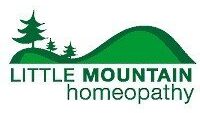
I agree! Check out my site: noodlenow.org I Think you will like it.
The only good thing that I can think of coming from this is nothing. I work with Autistic children (IBI) for a living, and the only link between MMR and Autism are that the average onset age of Autism is the same time as the MMR is given.
Time and again, I see ignorant fathers blame their wives for the children getting Autism, using MMR as the excuse.
Andrew Wakefield has been thoroughly discredited, not by the pharmaceutical industry, but by his peers. He does have some very good points in other areas, but he is wrong here.
You know that having MMR antibodies doesn’t mean a thing. I have teeth, so do they. What does that mean?
Hi, Nice post!
I really like it especially the part “Fear the MMR Vaccine, Not the Measles”
I will surely reading your other posts.
Thanks!
great blog sonya, hope for many more articles
Very informative Sonya. Good Job!
This is great!!!
This was awesome! Thank you so much!
Great blog Sonya – lots of FACTS pointing towards the truth! Carol
Great blog, Sonya. I’m placing it in my newsfeed so others will see & thank you so much for all the work you put into it.